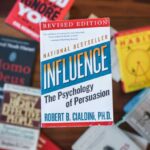We all have a need to exact revenge from time to time. In fact, it is hard-wired into animals and is especially acute in humans. Behavioral psychologists have conducted tests on animals and humans that show that when one party is wronged or feels unfairly treated, they will often try to deny or punish the other party, even if the effort also hurts themselves in the process.
In a popular test, one person is given ten dollars to split between himself and another unknown party in the proportion they choose. The receiver could either accept the amount offered or reject it. By rejecting the offer, no one would get the money. Both parties were aware of the rules and a logical receiver would accept any amount since it was better than nothing. However, what the test revealed was that if the receiver didn’t receive an equal share of five dollars, they would often reject the offer, causing both parties to forfeit their perspective share of the ten dollars.
In fact, further tests showed that most people would actually spend their personal time and money to punish the offending party, even if there was nothing for them to gain from the effort. With the use of Positron Emission Tomography (PET) scans, behavioral psychologists have shown that when a person actually spends time and money to exact revenge, regions of the brain associated with happiness light up. However, when it comes to exacting revenge from a business for something they did wrong, there is an important distinction that must be made. The distinction is that those who try to exact revenge often end up punishing the business more than the actual individual who gave the offense.
- For example, Tom Farmer and Shane Atchison of Seattle had a bad experience with a night clerk at the Houston DoubleTree Hotel. To exact their revenge, they developed a PowerPoint presentation to air their grievance with the hotel. The presentation went viral. The unfortunate thing, however, was although Tom and Shane wanted to exact revenge on Mike, the night clerk, the damage befell the entire hotel chain and many innocent employees suffered the consequence.
Similar situations happen every day in restaurants. For example, when a waiter angers a customer, the customer’s anger is all too often leveled at the restaurant vs the waiter. The customer claims that the restaurant provided poor service, which ultimately hurts the owner of the restaurant and the restaurant’s reputation and not the individual waiter. The waiter’s only penalty is perhaps the forfeiture of the customer’s tip.
Further studies in business revenge situations have shown the power of the word “sorry” in defusing vengeful actions and placating the customer. However, just as powerful as the word sorry is in removing the fuel of revenge, defending or denying the grievance has the opposite effect and actually adds fuel to the fire of revenge.
So, the next time someone feels they have been wronged or was not treated fairly by you or your company, the best course of action is not to argue or defend your actions but to neutralize the situation and just say that you are sorry.
When you get angry with a business and seek revenge, are you punishing the right party? When someone is angry with your company or with one of your agents, do you avoid defending or denying the grievance and respond with a simple apology?












